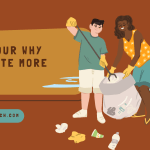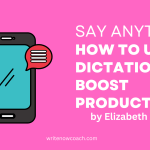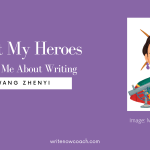Solving the Multitasking Puzzle
September 26, 2017
Note From Rochelle
Dear Readers,
I’ve got great news for you! This fall I’m launching a group coaching program! If you need accountability to start your book, finish a big project, or complete NaNoWriMo—this will help you! Check out the Write-A-Thon Group Coaching page to learn more.
After last week’s tip on how to single task, I realized that I often mindlessly multitask. When I hit a tough part of my writing, I check Facebook or Twitter. When I’m working on one project and remember I’d promised to email a client, I stop working and draft an email. If you struggle to stay on task, today’s tip will help you figure out why and support you in single tasking the most important work.
Enjoy!
Rochelle

Solving the Multitasking Puzzle
By Rochelle Melander
I’ve been a proponent of single tasking for years, and yet multitasking tempts me. I’m most often guilty of media multitasking—turning on a movie or video while doing a less-fun task, like creating invoices. The problem? While the movie makes the boring task more fun, it also slows me down. And I make embarrassing mistakes—like getting names wrong on letters and emails. But I persist—when I can media multitask, I do.
Before I say more about multitasking—remember that multitasking is really “context switching” or rapid toggling. We’re not doing two things at once, we’re rapidly moving between two or more tasks at once, sort of like people do at those circuit gyms.
As a coach, when my clients continually use practices that slow or stop their productivity, I ask: “What are you getting out of it?”
Today’s quest will help you evaluate when, where, and why you multitask. Once you know that, you can use single tasking when you are working on the projects that require the most focus.
The Quest
Review
When do you multitask? Review your life for times when you multitask and make a list. It might look like this:
+Commute. Complete phone calls to prospective clients.
+Cooking. Watch Netflix shows while making dinner.
+Research. Keep an eye on Twitter while researching potential book markets.
+Write. When I get bored or frustrated, I check Facebook.
+Connect. I tend to keep an eye on my phone and answer texts during meetings.
Evaluate
For the next week, pay attention to these multitasking sessions and evaluate them. Does multitasking affect your productivity? Does it affect your accuracy? What are you getting out of multitasking? Does it improve how you feel about doing less-desirable tasks? Do you feel like you are getting more done when you multitask? Or does multitasking—or really context switching—give you a break during difficult tasks?
Reflect
After evaluating these multitasking sessions, note what kinds of multitasking negatively impacts your productivity or effectiveness. Note also how multitasking improves your experience of a task. For example, I often watch Netflix while chopping vegetables for soup. While I may be less effective, it does help the task go faster.
Address
If you use multitasking or rapid context switching when you hit a difficult patch, consider how else you can deal with your frustration. For example, when you don’t know how to write a scene, you might check email or social media. Next time, consider taking a short, renewing break—like walking around the block—and then get back to writing. You might journal about the problem you’re having, addressing possible solutions. Or you could simply skip the tough part and come back to it later.
Practice
Choose one or two of the tasks that are negatively affected by multitasking. For the next week, commit to single tasking when you’re working on those projects. For example, if you need to research blogs to guest post on, set a timer to research markets for 10-15 minutes—without also watching television or monitoring Facebook.
Wrap up
Consider how you might benefit from using single tasking in your regular writing practice. When did single tasking help you the most? When did single tasking help you increase your productivity or accuracy? How will you make this a regular habit?
An offer
If you need help figuring out how to stop multitasking—especially when it helps you deal with the rough parts of writing—schedule a consultation.














